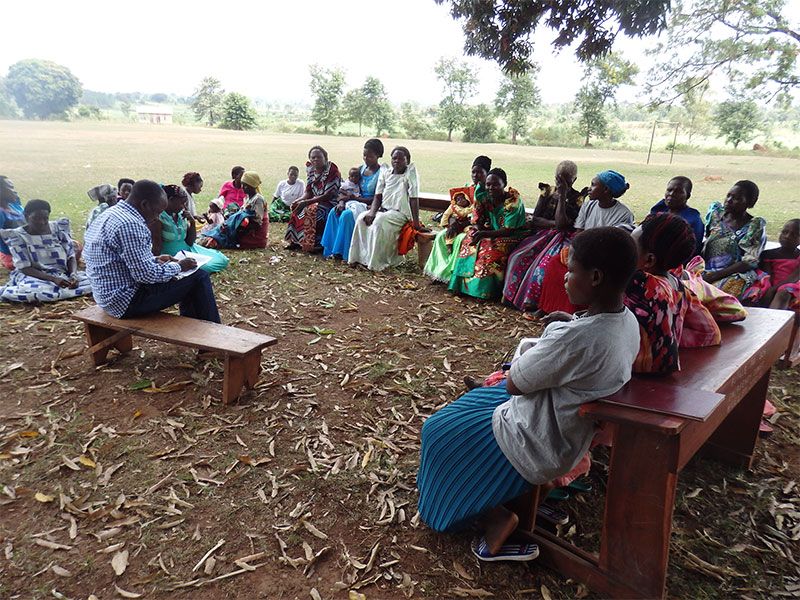In May 2017 Maarifa Consult, won a tender to conduct a final project evaluation for Integrated Agriculture livelihoods, Clean Water Supply and Environmental Sanitation project aiming at improved smallholder farmer quality of life in Wakiso, Mityana, Mubende and Kyenjojo – Gorta programme (UK) Self Help Africa (SHA) & Gorta UK. Self Help Africa – GSHA is a non-government organization based in Ireland with operational Offices in the United Kingdom and United States of America.
GSHA works with and through local community-based organisations, government agencies, international NGOs, private sector partners and emerging social enterprises in Uganda. Through open gate fundraising it has been funding a three-year project in partnership with THAD, RUCID and KYEFA has been implementing a 3-year Integrated Agriculture livelihoods, Clean Water Supply and Environmental Sanitation. This project based its actions in farming communities, health facilities and primary schools, since 2014. In addition, the evaluation aimed to contribute towards GSHA’s accountability towards its stakeholders, including donors, partners and beneficiaries.
The major objective of the programme was to strengthen the service delivery to marginalized, vulnerable and rural poor households, intensify awareness on basic environment sanitation and hygiene practices in schools and in rural communities and increase the coverage of clean and safe water and was to improve smallholder farmer quality of life in Wakiso, Mityana, Mubende and Kyenjojo. The programme’s objectives were to:
- To increase smallholder farmer household incomes earned from promoted agricultural value chains.
- To increase agricultural smallholder farmer production and returns on enterprises in the promoted value chain.
- To strengthen Partner ability to support and sustain grass root activities.
- To increase access to clean and safe water in 550 households (3,850 people) and 7 schools (2,100 pupils) in 4 sub counties in Wakiso, Mityana and Mubende districts by December 2016.
- To improve hygiene and sanitation, knowledge, attitude and practice in 7,500 households and 7 schools in 4 sub counties in Wakiso, Mityana and Mubende districts by December 2016.
- To build and or strengthen community structure to sustain project benefit.
To arrive at the answers to the evaluation questions, Maarifa Consult Ltd Team used a mixed methods approach that entailed both quantitative and qualitative data collection techniques. In order to collect relevant information and ensure that the evaluation findings fully responded to the purpose of the evaluation, the Team also used triangulation of data generated from the various methods. (i) Document reviews; (ii) Key informant interviews; iii) Focus group discussions (FGDs); (iv) surveys of beneficiaries (WASH and Agriculture) and implementer such as THAD, RUCID and KYEFA staff. Gender components were integrated within the Survey Questionnaires; v) Stakeholder Analysis; and (vi) Observations at service delivery and Water source vii) Transect Walk. For the beneficiary surveys, the Team used a random sampling method and purposive sampling.

